Your social brain on leadership
Your brain is a social organ. . .
We tend to think of our brain as our individual biological organ. We say things like: “I have to make my own mind.” “That’s my own opinion.” “That’s how I think.” But social neuroscience teaches us that the human brain is a social organ, intimately connected to other brains.
This has huge implications for leadership. Scientists are understanding better the neural infrastructure of social connection, attunement, and empathy. As a result, we are understanding better the deeper structures of human relationships.
Dr. Louis Cozolino, Professor of Psychology at Pepperdine University, talks about the social brain. He explains that brains are always connecting to other brains because we are social people. Therefore, through storytelling, dialogue, and other connecting activities, we have a way to "download" to our brains the environment, knowledge, and culture, around us.
Brains adapt. And the collective social brain of a "tribe" (business, church, school, family, etc.) can "jump" across and form the "social synapse," just like your individual brain makes synapses. Think about your brain as hub of energy connected to other brains.
Just as at the biological level in your brain the neurons that fire together, wire together, at the sociological level brains that think together bond together. Therefore, the brain is structured to adapt to the environment-- a bridge to more efficient ways of leadership should not be so difficult to construct.
Where the rubber mets the road though, is that our own beliefs and thoughts can inhibit that adaptation. That is why people have to be willing to open their minds to the influence of others for paradigm shifts to happen. This is also the reason why you can't "make" anybody change their way of thinking (even though you can force them to change their way of behaving).
What the social brain means for leaders
Leaders need to be willing to be open and flexible. Flexibility allows for an open exchange of opinions and view points. It allows one to be vulnerable and say, "you're right, I hadn't considered it that way before," without having to change one's stance on something. Flexibility also denotes the ability to not hold so rigidly to an opinion or stance.
When a leader shows empathy, understanding, and willingness to listen to a diversity of opinions, the mirror neurons of other brains will tend to do the same. If you smile, and are kind, the mirror neurons of those around you will, well, mirror the same.
We need all brains....
Diversity of minds is the most important kind of diversity needed for change and innovation to happen. Change might only be had with open minds. No models will work until we open our minds. Brains in relationship create a better workplace.
Thinking that we don’t know everything will more likely drive to better understanding and a wider perspective. Allowing ideas to move forth is more effective than relying on what we "know". True wisdom arises not only from the mind/intellect--but from another larger source within each of us, manifesting in the collective social brain
These brings us back full circle. If you accept you don’t know everything, you recognize your business will probably not survive if you try to lead it alone. When different brains come together in collaboration, the end result will be wiser, and survival will be most likely to happen. The social brain likes company and the sharing of thoughts. Give your people the opportunity to collaborate and think together, and they will bond together.
Remember. . .
Brains that think together bond together. Your role as a leader is to facilitate the interaction of the brains around you. If your people feel part of the business, from planning to implementation, their brains will bond together and the environment will be more positive.
Connecting brains will also bring diversity of thought that will more easily prevent oversights and mistakes. You have a social brain! Use it wisely to connect and construct together a better business and a better world.
Your turn. . .
How can knowing abut the social brain help you in the way you lead? I would love to know what you think, so please share your thoughts with us.
P.S.
If you want to know more about your brain, Brain PathWays™ is the system you need to discover and leverage your unique brain strengths. Follow your brain pathways on a journey of self-discovery and insights. Learn how new science helps to blend neuroscientific knowledge with leadership development, team management, and coaching. If your and your team takes this short validated test, you will better understand the interaction between your brains.
